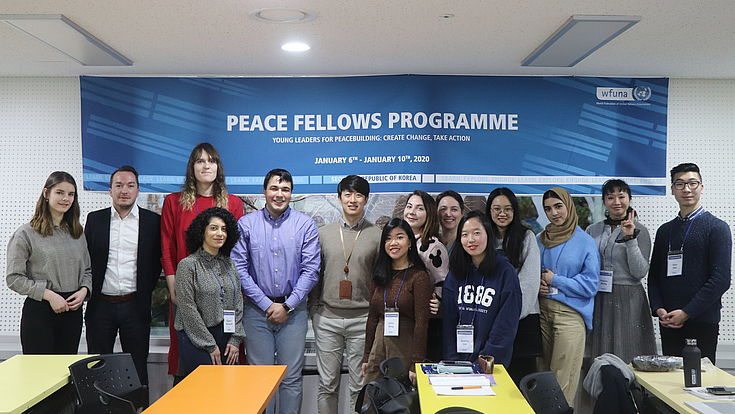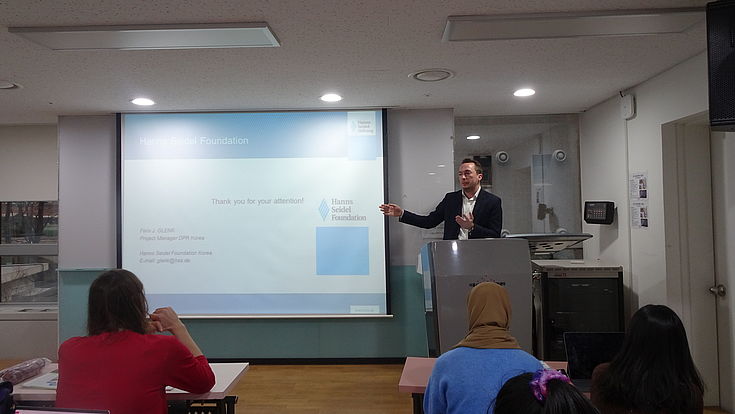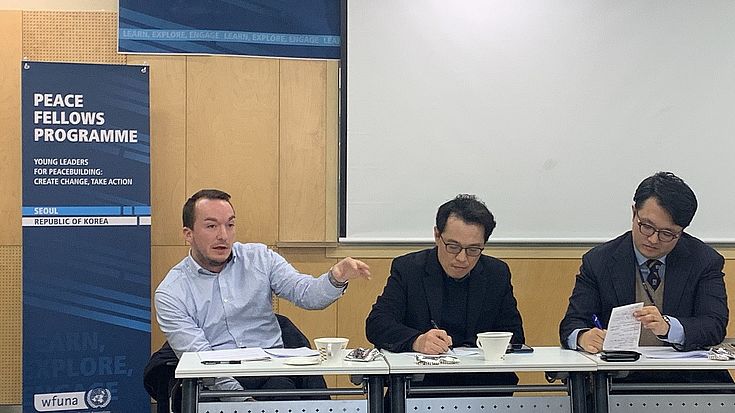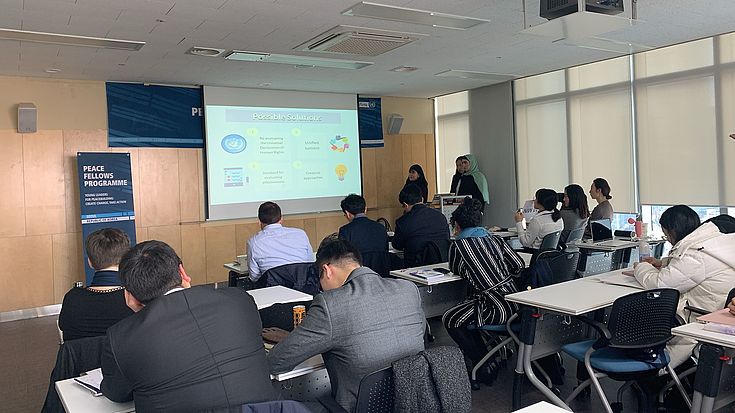Special Lecture
WFUNA Peace Fellows Programme

The 5-day program organized by the WFUNA gave young people from around the globe the opportunity to observe firsthand the long-lasting effects of war, the local realities of the global discourse on peace, and the recent developments towards peace on the Korean peninsula. The participants were taught in the UN’s peacebuilding work and the SDGs, especially in peacebuilding efforts in the North East Asian region.

On the 7th of January Felix Glenk from the Hanns Seidel Foundation Korea introduced the HSF and their activities in North Korea in the context of the program. In his presentation “Engagement with North Korea – Economic, Social, and Environmental Aspects” Glenk talked about the biodiversity and the developing market mechanisms in the DPRK. After that he introduced the current projects of the HSF Korea, the HSF Forestry Project for reforestation and the project on Conservation and Wise Use of Wetlands in the DPRK. Finally, he gave an outlook into the future of the projects and North Korea. The base for a peaceful development on the Korean peninsula is a depoliticized communication on a universal level, such as nature conservation. After the presentation Glenk gave a question and answer session.

On the 10th of January the Hanns Seidel Foundation Korea was invited to the 5-day program for a second time. This time the participants introduced the results of the program in form of group presentations. The first group presented about the effectiveness of human rights movements in North Korea. The difficulties of analyzing the effectivity of human rights movements were discussed in the presentation. Current methods of human rights advocacy as well as effectiveness of international organizations were analyzed. Possible solutions for improving the situation were a re-evaluation of the Universal Declaration of Human Rights, a unified summit and a standard for evaluating effectiveness.

The second team held a presentation about engaging the private sector in the peace-building process. The argument was the importance of the private sector for the development of countries in transition. Therefore, the private sector is essential for conflict transformation capacity. The presenters suggested to support organizations like the Hanns Seidel Foundation to aid the private sector through environmental projects and humanitarian aid.
The final group discussed the influence of GSOMIA (General Security of Military Information Agreement) on peace in North-East Asia. The third team argued that the GSOMIA is an indicator for peace in the region by operating as a channel for information sharing, a political bargaining chip and a basis upon building alliances. It was suggested to develop a GSOMIA between North and South Korea to build trust, common goals and a neutral ground between great powers.
